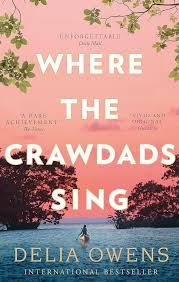1. Ma
byMa’s departure in the summer of 1952 was a turning point for six-year-old Kya Clark, a moment etched into the quiet, stifling heat of the North Carolina marshlands. The air, thick with humidity, seemed to press down upon the land, as if nature itself shared in the weight of Kya’s loss. Her mother, dressed in her only pair of good shoes and carrying a blue train case, walked away from the shack without a word, leaving Kya to watch her vanish into the horizon. The sense of abandonment that Kya experienced in that moment was compounded by her confusion, for she was too young to comprehend the permanence of her mother’s departure. Her heart, still innocent and trusting, failed to understand the finality in the absence of a goodbye. The environment, a mixture of earthy smells, was the only constant, but it felt more like a prison than a refuge as Kya stood there, her small figure dwarfed by the towering oaks and palmettos that surrounded their shack.
The marsh, which had become both home and battleground for Kya’s family, had long been referred to as the “Graveyard of the Atlantic,” a place that had seen many souls come and go, each person running from something—whether it be a criminal past or a desperate need for escape. The swamp’s mysterious, murky waters provided both a retreat from the rest of the world and a place where secrets were buried deep beneath the surface. This land had its own rules, the laws of survival being passed from one generation to the next, learned through hardship and necessity. Kya’s family was no exception to the harshness of the environment, and while they sought shelter there, they also faced the perilous dangers that came with living on the edge of society. It was in this swampy wilderness that Kya found herself both sheltered and trapped, caught between the demands of survival and the isolation of being cast aside.
With the departure of her mother, Kya’s life took a drastic turn. The instability that came with Ma’s absence left a gaping hole in the small family, and Kya and her siblings were forced to adapt quickly, trying to make sense of their circumstances. Their father, who had already been emotionally distant before Ma’s exit, remained largely absent, both physically and emotionally. This left Kya to navigate her own world, and it was here, in her innocence, that she began to understand the unspoken rules of survival. Jodie, her older brother, tried to hold on to the hope that their mother might return, but the reality of the situation set in when he too began to withdraw, struggling with the emotional toll of being abandoned. The small family that once had a sense of unity was now drifting apart, each member grappling with their own version of loss and loneliness.
Kya’s world, once a space filled with the warmth of family, now became a place of profound isolation. As she took over more responsibilities around the house, from preparing meals to cleaning the shack, her relationship with the marshland deepened. The landscape became her sanctuary and her teacher, but also a constant reminder of what she had lost. The marsh’s rhythms became the backdrop to her existence, offering a strange sense of peace while also demanding a resilience from her that no child should have to face. The story begins to shift as Kya’s connection to the land becomes not just a matter of survival, but also an emotional tether to a world that had largely rejected her. The marsh, both her refuge and her crucible, would shape her into someone who had learned to survive in a world where abandonment and neglect were commonplace, yet where the beauty of nature offered moments of solace amidst the hardship.
As Kya navigates her new, harsh reality, the stark landscape of the marsh becomes a mirror for her own journey through abandonment and resilience. In this unforgiving world, Kya must learn to depend on herself, finding solace not in the warmth of a home, but in the vast, untamed wilderness around her. The land becomes both her teacher and her protector, offering her the tools she needs to survive, though at times, it feels as though the weight of her isolation will drown her. Yet, through it all, Kya’s connection to the marsh teaches her not just how to survive, but how to hold onto hope and beauty, even in the darkest times.


